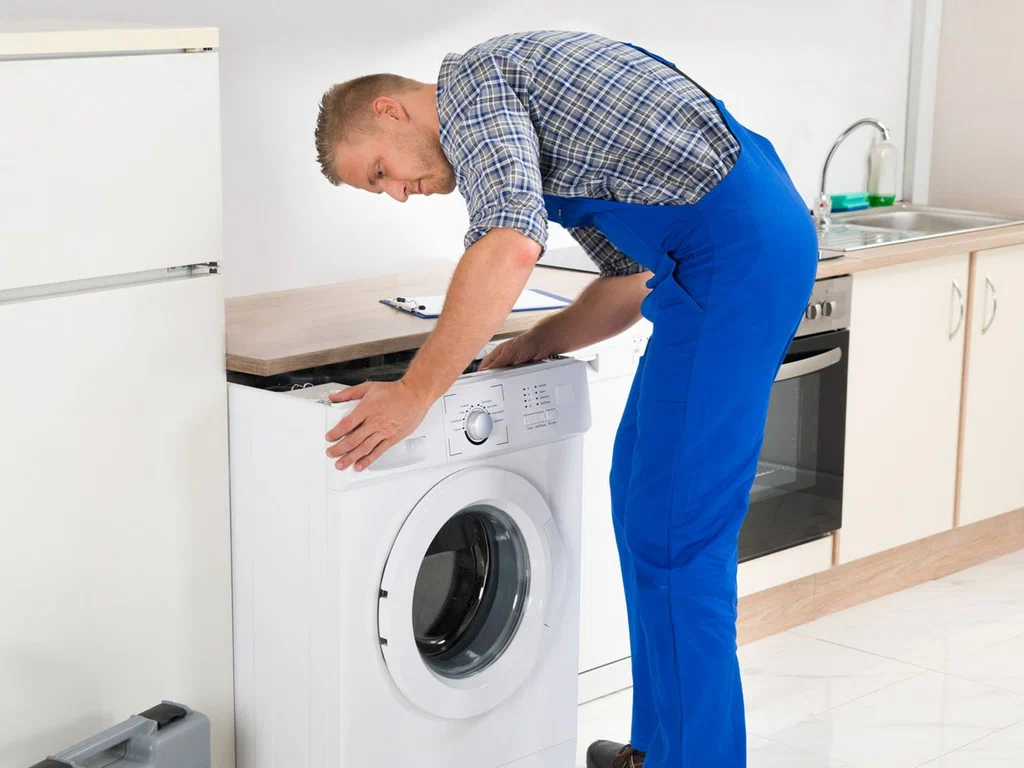Washing Machine Repair Myths: What You Should Know
Washing machines are crucial in modern homes, making laundry day much easier. However, they can develop problems over time. When issues arise, people often turn to the internet or ask friends and family for advice. Unfortunately, this often leads to encountering myths and misunderstandings about washing machine repair. In this article, we will clear up some of the most common myths and give you accurate information to help you make informed decisions about your washing machine.
Myth 1: You Can Fix Any Washing Machine Problem with DIY Tutorials
Reality: While many DIY tutorials are helpful, they don’t cover every possible washing machine issue. Washing machines are complex, with many parts that can fail. Simple problems like clogged filters or faulty hoses might be fixable with DIY methods. However, more complicated issues, such as those involving the motor or control board, need specialized knowledge and tools. Trying to fix these parts without proper training can lead to more damage or even be dangerous. If you’re unsure, it’s best to consult a professional.
Myth 2: A Higher Price Means Better Quality Parts
Reality: Price doesn’t always mean better quality. Washing machine parts can vary in cost because of brand, materials, or other factors, but this doesn’t guarantee better performance. It’s important to buy parts from reliable sources and check if they fit your washing machine model. Sometimes, aftermarket or generic parts work just as well but cost less. Do your research and read reviews to make sure you’re getting a good part, not just paying for a brand name.
Myth 3: If Your Washing Machine Isn’t Draining, You Need a New Pump
Reality: If your washing machine isn’t draining, it doesn’t always mean you need a new pump. First, check for other issues like clogged filters, blocked drain hoses, or kinks in the hoses. Often, a simple cleaning or adjustment can fix the problem. If these steps don’t work, then check the pump. If the pump is faulty, it might need replacing, but always diagnose thoroughly first to avoid unnecessary repairs.
Myth 4: Washing Machine Noises Are Always a Sign of a Serious Problem
Reality: Washing machines can make various noises, and not all indicate serious issues. Some noises, like thumping or banging, might be due to unbalanced loads or loose items in the drum. Grinding noises could be a sign of a worn drive belt or something stuck in the pump. While persistent or unusual noises should be checked, they aren’t always a sign of major problems. Start by balancing the load or removing foreign objects before assuming there’s a serious issue.
Myth 5: You Should Always Use the Most Expensive Detergent for the Best Results
Reality: The effectiveness of detergent isn’t always about its price. While expensive detergents might offer extra features, like fragrance or special cleaning formulas, they’re not necessarily more effective than budget options. The key is to use the right amount of detergent for your load size and machine type. Using too much detergent can cause excessive suds and residue buildup, which can affect the machine’s performance. Choose a detergent suited for your washing machine and follow the manufacturer’s instructions.
Myth 6: You Don’t Need to Clean Your Washing Machine
Reality: Washing machines need regular cleaning and maintenance to work well and avoid bad smells. Over time, detergent residues, lint, and other debris can build up inside the machine, affecting its performance. Running a cleaning cycle with a washing machine cleaner, wiping down seals and gaskets, and checking and cleaning the filter are important maintenance tasks. Skipping these steps can lead to mold growth and unpleasant odors.
Myth 7: You Can Use Any Type of Detergent in a Front-Load Washing Machine
Reality: Front-load washing machines need high-efficiency (HE) detergents that create fewer suds. Using regular detergent can create too much foam, causing drainage problems, poor rinsing, and potential damage to the machine. Always use the type of detergent recommended by the manufacturer for your front-load washer. HE detergents are designed to work well with low water levels and reduce the risk of oversudsing.
Myth 8: If Your Washing Machine Smells Bad, You Need to Replace It
Reality: Bad smells from a washing machine don’t always mean it needs to be replaced. Often, these smells come from mold, mildew, or residue buildup. Regular cleaning and maintenance can usually fix these problems. Running a hot water cycle with washing machine cleaner or white vinegar can help remove odors. Also, leaving the door open between washes helps the machine dry out and prevents future odors. If the smell continues despite cleaning, there might be a deeper issue that needs professional help.
Conclusion
Knowing the truth behind these common washing machine repair myths can help you make better choices about maintaining and fixing your appliance. While DIY repairs can work for some issues, recognizing when to call a professional is important. Regular maintenance, using the right detergents, and addressing problems quickly can extend your washing machine’s life and keep it running efficiently. By understanding these myths, you can handle washing machine repairs with more confidence and knowledge, leading to better outcomes and a well-maintained appliance.


